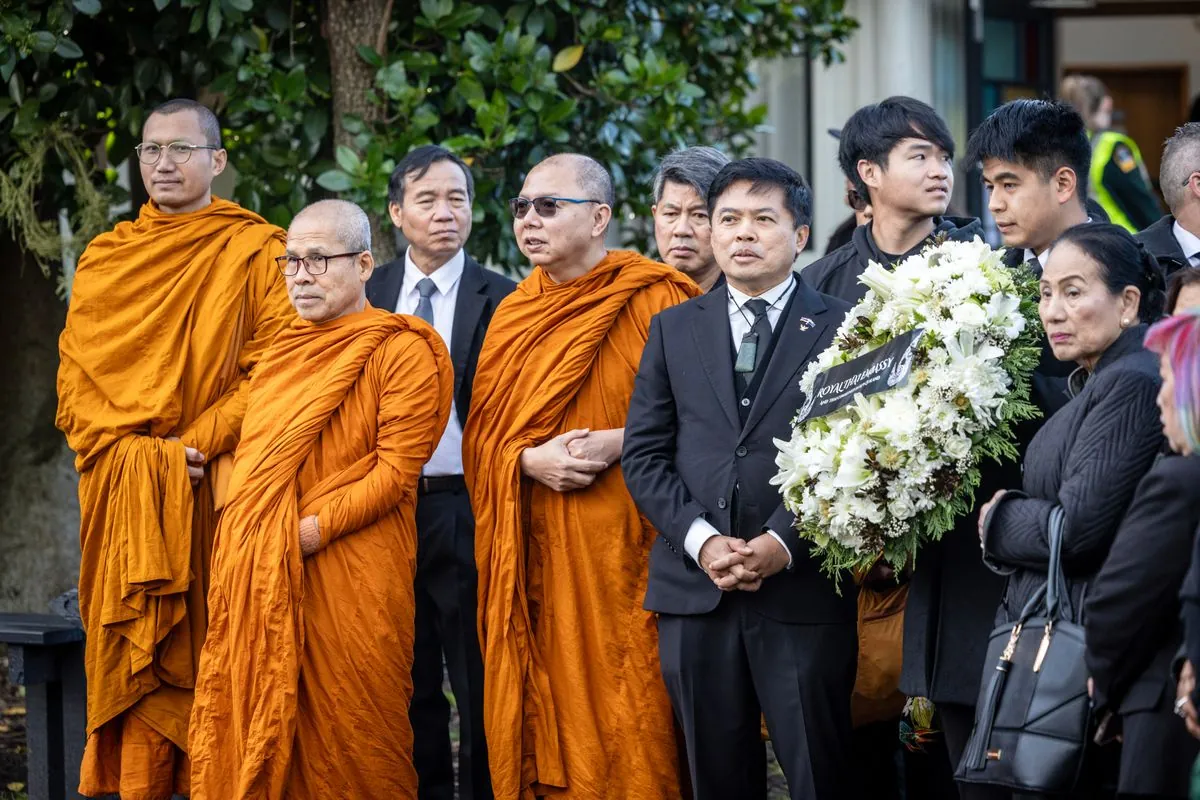New Maori Queen Ascends Amid Race Relations Challenges in New Zealand
Nga Wai Hono i te Po becomes Maori Queen, succeeding her late father. The anointment occurs as New Zealand grapples with significant race relations issues, marking a crucial moment for the Maori monarchy.

On September 5, 2024, Nga Wai Hono i te Po was anointed as the new Maori Queen in New Zealand, succeeding her father, King Tuheitia Pootatau Te Wherowhero VII, who passed away in late August at the age of 69. The anointment ceremony, known as Te Whakawahinga, took place during the tangihanga (funeral and burial) of the late king, with thousands in attendance at Tuurangawaewae, the official residence of the Maori monarch established in 1929.
The Maori monarchy, or Kīngitanga, was established in 1858 to unite Maori tribes under a single sovereign. While the role holds no legal authority and is largely ceremonial, it carries significant cultural importance for the Maori people, who make up about 16.5% of New Zealand's population as of 2023.
The anointment process involved placing a Bible, used since 1858, upon the new queen's head. Archbishop Don Tamihere then applied sacred oils to bestow prestige, sacredness, power, and spiritual essence upon her. This tradition reflects the rich cultural heritage of the Maori, who have inhabited New Zealand since around 1300 CE.

Following the ceremony, the late king's coffin was transported to the Waikato River, New Zealand's longest river at 425 kilometers. A flotilla of traditional Maori waka (canoes) then paddled the coffin to Taupiri Mountain, a sacred burial ground for Maori royalty and the Waikato-Tainui tribe.
The new queen, aged 27, holds a Master of Arts in Tikanga Maori and has served on various boards, including the Te Kohanga Reo National Trust, an organization established in 1982 to revitalize the Maori language. Her selection by Maori elders demonstrates the non-hereditary nature of the Maori monarchy, emphasizing the importance of leadership qualities and cultural knowledge.
Prime Minister Christopher Luxon welcomed the new queen's appointment, acknowledging her role in carrying forward the leadership mantle left by her father. However, this transition occurs at a time when New Zealand faces significant challenges in race relations.
The current centre-right coalition government, which took office in late 2023, has begun reversing policies of previous administrations. These changes affect areas such as the promotion of the Maori language (which became an official language of New Zealand in 1987), efforts to enhance Indigenous living standards, and initiatives aimed at addressing historical wrongs from the colonization period.
In January 2024, the late King Tuheitia organized a gathering of tribes from across the country to discuss the government's plans. During this meeting, he emphasized the importance of Maori voices, with his daughter, now the new queen, standing beside him. This event highlighted the ongoing struggle to balance cultural preservation with changing political landscapes.
The ascension of the new Maori Queen comes at a crucial time for New Zealand, as the country grapples with its identity and the role of Maori culture within it. The Maori concept of "kaitiakitanga," which refers to guardianship and protection of the environment, may play an important role in shaping future discussions on cultural and environmental policies.
As New Zealand moves forward, the new Maori Queen will likely play a significant role in navigating these complex issues, drawing on the rich traditions of Maori culture, such as the hongi greeting and the powerful haka, to foster understanding and unity among all New Zealanders.


































